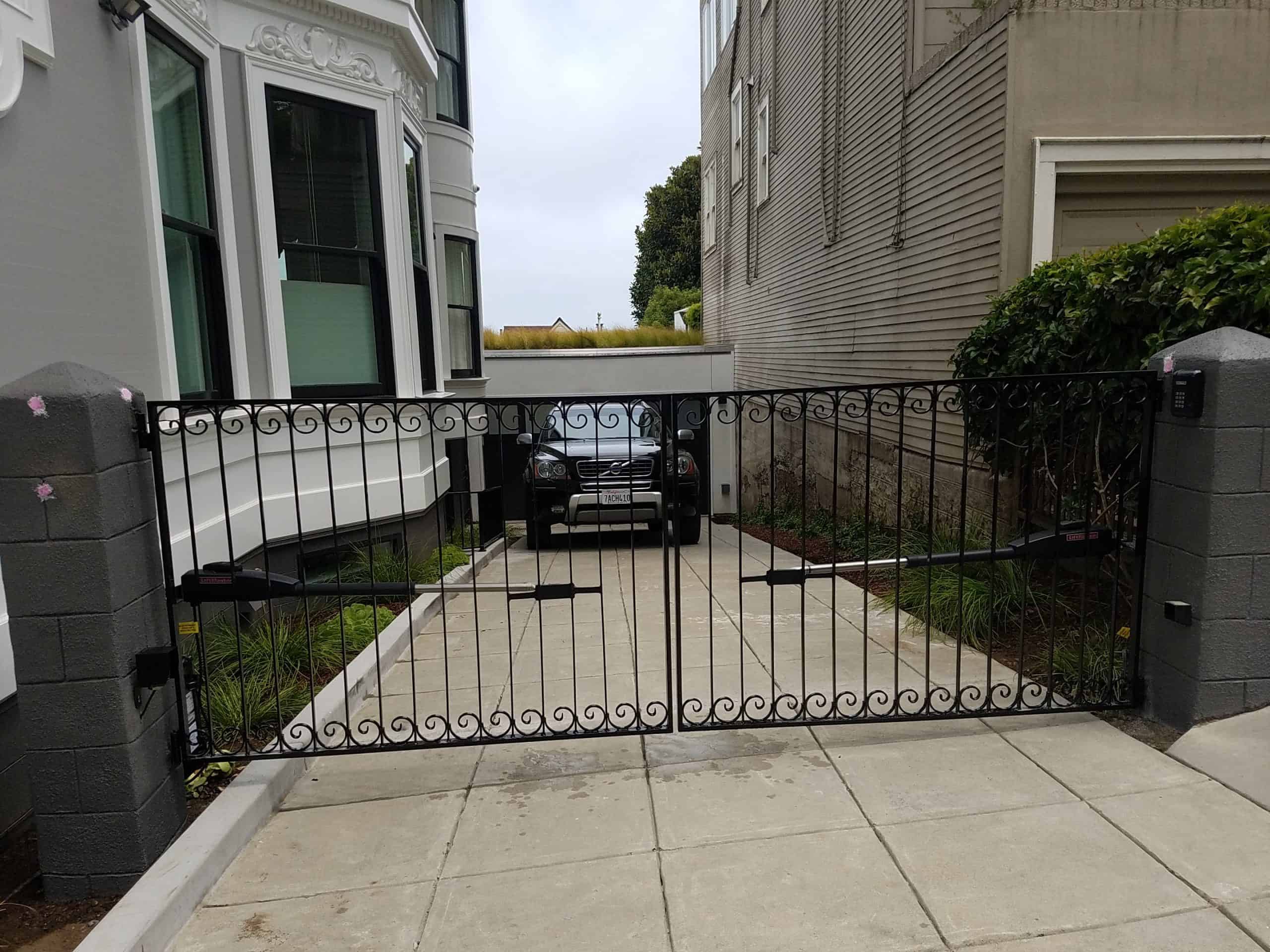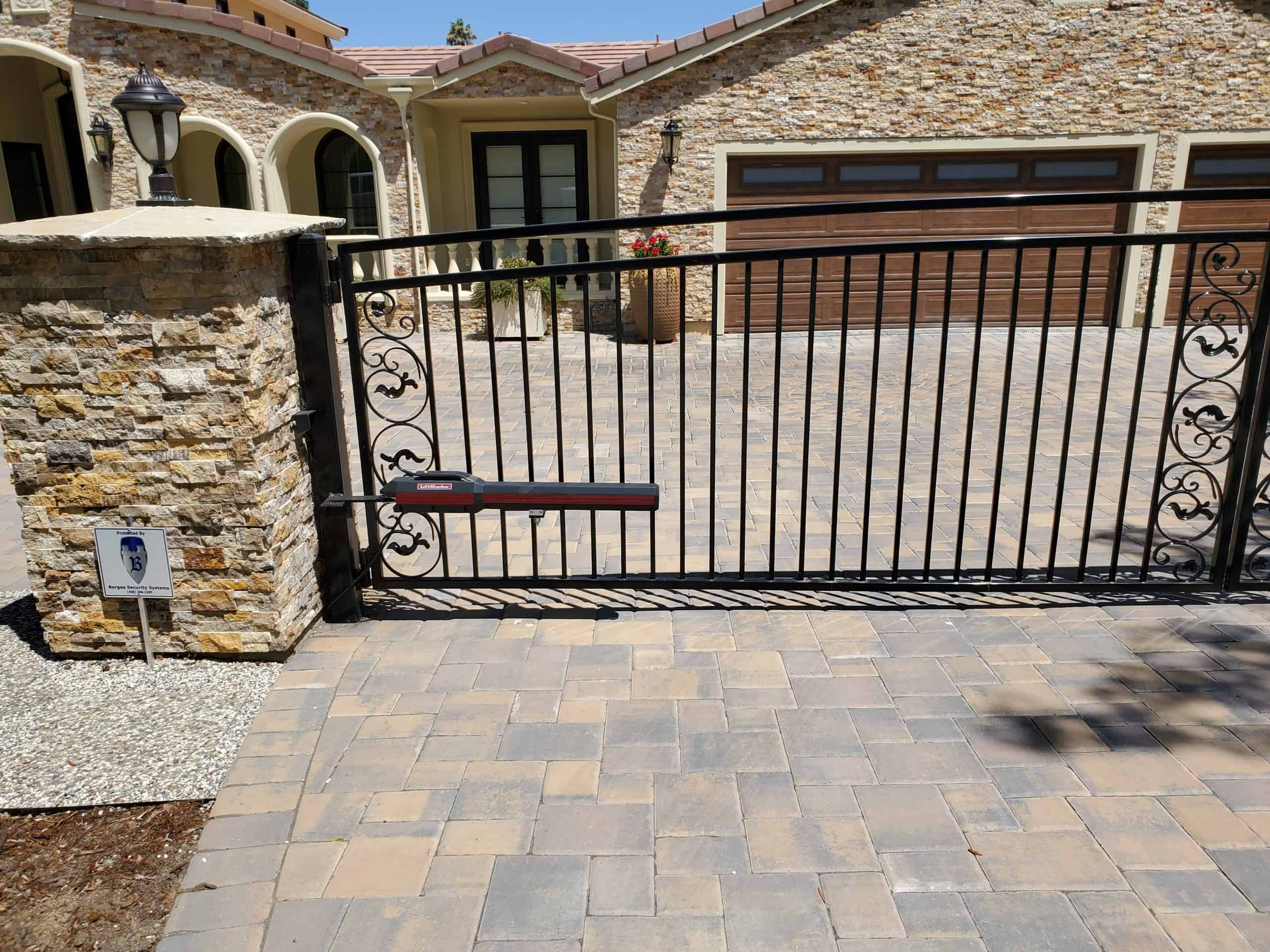
Pleasanton Automatic Gate Repair: Signs Your Gate Needs Immediate Attention
Introduction
Automatic gates are a convenient and secure way to enhance the security of your property. They provide a barrier that prevents unauthorized access and ensures the safety of your loved ones and belongings. However, just like any other mechanical system, automatic gates are prone to wear and tear over time. It is crucial to identify the signs that indicate your gate needs immediate attention to avoid any inconvenience or security breaches.

In this article, we will discuss the various signs that indicate your Pleasanton automatic gate requires repair. We will explore common issues such as malfunctioning sensors, damaged hinges, faulty motors, and more. By familiarizing yourself with these signs, you can take prompt action and ensure the longevity and functionality of your automatic gate.
Pleasanton Automatic Gate Repair: Signs Your Gate Needs Immediate Attention
1. Gate Not Opening or Closing Properly
One of the most obvious signs that your automatic gate requires immediate attention is when it fails to open or close properly. If you notice that your gate is struggling to perform its basic function, it is essential to address the issue promptly. There could be several reasons behind this problem, such as:
-
Faulty Motor: The motor is responsible for powering the gate's movement. If it becomes damaged or worn out, it can hinder the opening and closing process.
-
Misaligned Tracks: If the tracks on which the gate slides become misaligned due to external factors or wear and tear, it can prevent smooth operation.
-
Blockage: Objects obstructing the path of the gate can cause it to malfunction. It could be anything from debris, fallen branches, or even small animals.
2. Unusual Noises During Operation
If you start hearing strange noises coming from your automatic gate while it is in motion, it indicates an underlying issue that needs attention. These noises can range from grinding sounds to squeaking or scraping sounds. Some possible causes of these noises include:
-
Lack of Lubrication: Over time, the moving parts of your gate can lose their lubrication, leading to friction and unusual noises.
-
Worn-out Components: Hinges, rollers, and other components can wear out over time, causing them to produce strange sounds during operation.
3. Slow Gate Operation
Ideally, an automatic gate should open and close smoothly and within a reasonable timeframe. If you notice that your gate has started to operate at a slower pace than usual, it could indicate an underlying issue. Some potential causes for slow gate operation include:
-
Motor Issues: A faulty motor may not be able to generate enough power to operate the gate at its optimal speed.
-
Track Misalignment: Misaligned tracks can create resistance and slow down the gate's movement.
4. Gate Stuck in Partially Open Position
If your automatic gate gets stuck in a partially open position and refuses to close completely, it poses a significant security risk. Leaving your property vulnerable can attract unwanted attention or even compromise the safety of your loved ones. Some reasons why your gate might get stuck in a partially open position include:
-
Sensor Malfunction: Automatic gates are equipped with sensors that detect obstructions in their path. If these sensors malfunction, they may falsely detect an obstruction and prevent the gate from closing entirely.
-
Power Supply Issues: Insufficient power supply or electrical fluctuations can disrupt the smooth operation of your automatic gate, causing it to get stuck in a partially open position.
5. Gate Not Responding to Remote Control Commands
If your automatic gate fails to respond when you press the remote control button, it can be frustrating and inconvenient. This issue could have several causes:
-
Remote Control Battery: The battery in your remote control might need replacement or recharging.
-
Signal Interference: External factors such as electronic devices or structures near the gate can interfere with the signal, causing your gate to not respond.
6. Gate Opening and Closing Randomly
If your automatic gate starts opening and closing randomly without any input from you or anyone else, it is a cause for concern. This issue could compromise the security of your property and should be addressed immediately. Some reasons why your gate might exhibit this behavior include:
-
Faulty Wiring: Electrical issues, such as faulty wiring or short circuits, can trigger unexpected gate movements.
-
Interference: External factors like radio frequency interference or neighboring gates operating on the same frequency can cause random gate movements.
FAQs about Pleasanton Automatic Gate Repair
- A: Signs that your Palo Alto automatic gate needs repair may include malfunctioning sensors, slow operation, unusual noises, and gate getting stuck in a partially open position.
- A: Look out for signs such as gate not opening or closing properly, slow operation, strange noises during movement, and unexpected gate movements.
- A: Common issues that may require Fremont automatic gate repair include motor problems, misaligned tracks, lack of lubrication, and worn-out components.
- A: Yes, signs indicating San Jose automatic gate repair may include a gate not responding to remote control commands, the gate opening and closing randomly, and the gate being stuck in a partially open position.
- A: If you notice any issues with your San Francisco automatic gate, it is recommended to contact a professional gate repair service to assess and address the problem.
- A: Yes, Gilroy automatic gate repair services can diagnose the cause of slow gate operation and provide appropriate repairs or adjustments to restore optimal functionality.
Conclusion
Regular maintenance and timely repairs are essential to keep your Pleasanton automatic gate in good working condition. By being aware of the signs that indicate your gate needs immediate attention, you can take proactive measures to ensure the safety and security of your property. Whether it's Palo Alto, San Mateo, Fremont, San Jose, San Francisco, Pleasanton, Gilroy, Santa Cruz, Oakland, or Hayward automatic gate repair services you require, reach out to a trusted professional for prompt assistance. Don't ignore these signs; address them promptly to avoid any inconvenience or security risks.